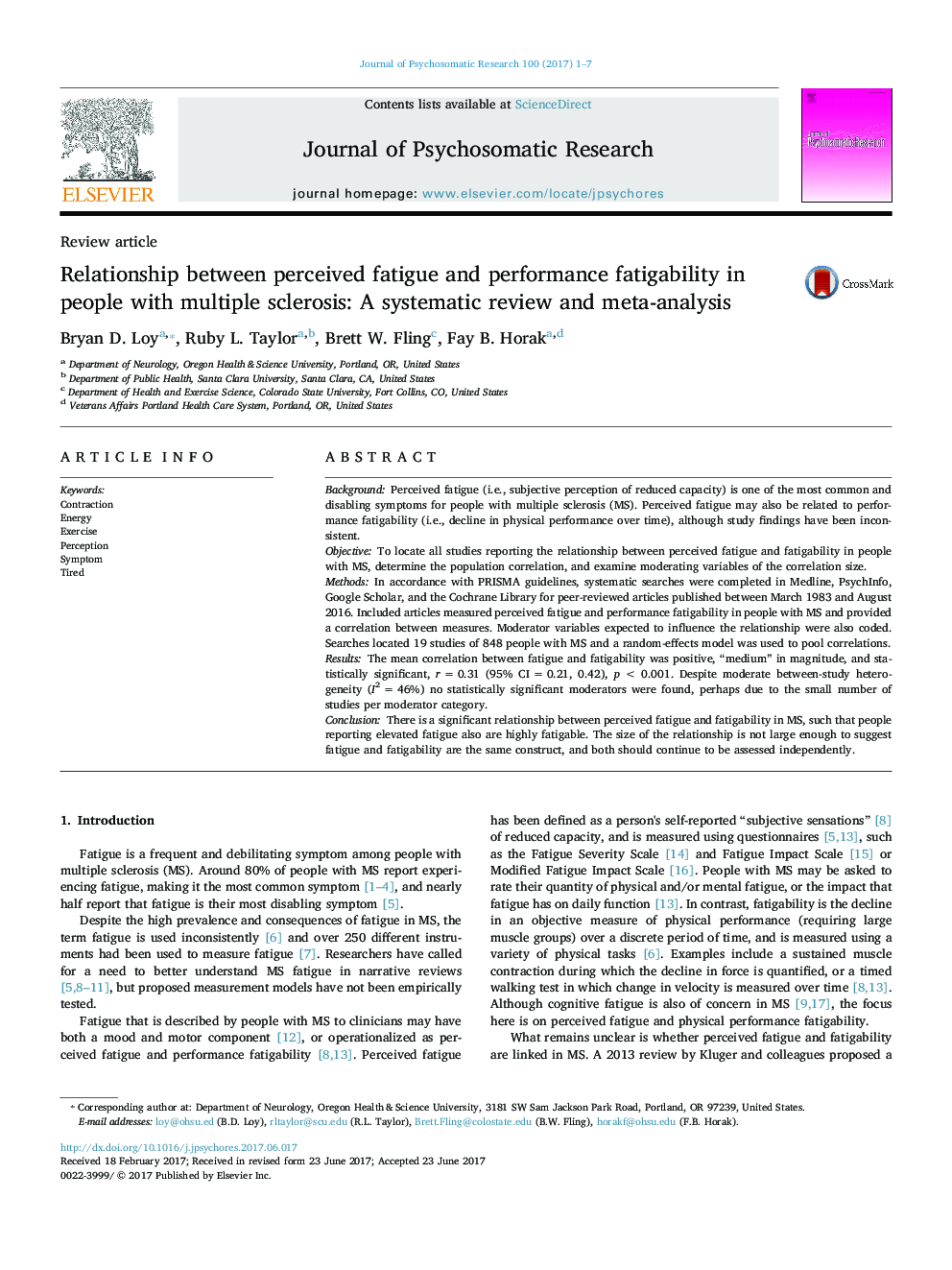| کد مقاله | کد نشریه | سال انتشار | مقاله انگلیسی | نسخه تمام متن |
|---|---|---|---|---|
| 5045795 | 1475895 | 2017 | 7 صفحه PDF | دانلود رایگان |
- 19 studies located measuring fatigue and fatigability in multiple sclerosis.
- Mean correlation between fatigue and fatigability was medium (r = 0.31, p < 0.001).
- No significant correlation moderators (e.g., measure, disease subtype) are found.
- Fatigue and fatigability are related, but should be measured separately.
BackgroundPerceived fatigue (i.e., subjective perception of reduced capacity) is one of the most common and disabling symptoms for people with multiple sclerosis (MS). Perceived fatigue may also be related to performance fatigability (i.e., decline in physical performance over time), although study findings have been inconsistent.ObjectiveTo locate all studies reporting the relationship between perceived fatigue and fatigability in people with MS, determine the population correlation, and examine moderating variables of the correlation size.MethodsIn accordance with PRISMA guidelines, systematic searches were completed in Medline, PsychInfo, Google Scholar, and the Cochrane Library for peer-reviewed articles published between March 1983 and August 2016. Included articles measured perceived fatigue and performance fatigability in people with MS and provided a correlation between measures. Moderator variables expected to influence the relationship were also coded. Searches located 19 studies of 848 people with MS and a random-effects model was used to pool correlations.ResultsThe mean correlation between fatigue and fatigability was positive, “medium” in magnitude, and statistically significant, r = 0.31 (95% CI = 0.21, 0.42), p < 0.001. Despite moderate between-study heterogeneity (I2 = 46%) no statistically significant moderators were found, perhaps due to the small number of studies per moderator category.ConclusionThere is a significant relationship between perceived fatigue and fatigability in MS, such that people reporting elevated fatigue also are highly fatigable. The size of the relationship is not large enough to suggest fatigue and fatigability are the same construct, and both should continue to be assessed independently.
Journal: Journal of Psychosomatic Research - Volume 100, September 2017, Pages 1-7
